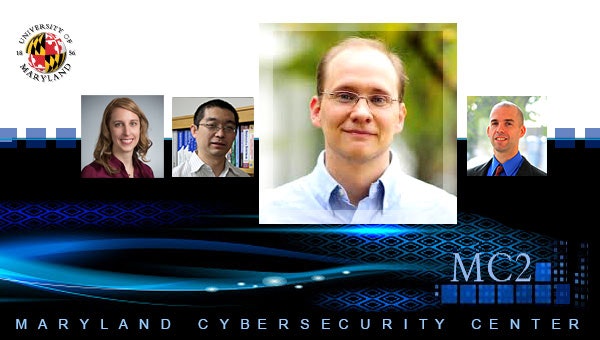Cryptography Engineer
vigating the World of Cryptography Engineering
Cryptography engineering is the discipline of designing and building systems to secure communications and data. At its core, it involves the creation and implementation of cryptographic algorithms and protocols to protect information from unauthorized access, use, disclosure, alteration, or destruction. If the idea of crafting digital shields and shaping the future of secure information exchange intrigues you, then a career as a cryptography engineer might be a path worth exploring. This field offers the continuous intellectual challenge of outsmarting those who seek to break codes and the satisfaction of contributing to a more secure digital world.
For those less familiar, imagine sending a secret message that only your intended recipient can read. Cryptography engineers are the modern-day equivalents of master code makers, but instead of wax seals and hidden compartments, they use complex mathematics and sophisticated software to protect everything from your online banking transactions to classified government communications. The thrill of this career lies in the constant cat-and-mouse game with attackers, requiring engineers to stay one step ahead in an ever-evolving technological landscape. The work is crucial in our increasingly digital society, underpinning the trust and security of countless systems we rely on daily.
Introduction to Cryptography Engineering
Cryptography engineering stands as a specialized branch of information security. It focuses on the practical application of cryptographic techniques to ensure data confidentiality, integrity, authenticity, and non-repudiation. Professionals in this field are instrumental in developing, implementing, and managing secure systems across various platforms and industries. Their expertise is vital in a world where digital information is constantly under threat. The increasing reliance on digital technologies means the demand for skilled cryptography professionals continues to grow.
Defining Cryptography Engineering and Its Role in Modern Security
Cryptography engineering involves the art and science of designing, building, and maintaining secure communication systems. This includes everything from the underlying mathematical algorithms to the software and hardware that implement them. In today's interconnected world, where vast amounts of sensitive data are transmitted and stored, the role of a cryptography engineer is more critical than ever. They are the architects of digital trust, ensuring that our online interactions, financial transactions, and personal information remain private and secure.
Modern security heavily relies on the robust cryptographic solutions developed by these engineers. They work to protect data at rest (stored data) and data in transit (data being communicated). This involves a deep understanding of various cryptographic primitives like encryption algorithms, hash functions, and digital signatures, and how to combine them effectively to build secure protocols. The field is dynamic, constantly adapting to new threats and technological advancements.
The responsibility of a cryptography engineer extends beyond just implementing existing cryptographic tools. It often involves analyzing the security of existing systems, identifying potential vulnerabilities, and designing new cryptographic protocols tailored to specific security needs. They must also consider the practical aspects of security, such as key management, performance, and usability, to ensure that the implemented solutions are both secure and effective in real-world scenarios.
Overview of Encryption, Decryption, and Secure Communication Systems
At the heart of cryptography lies the concept of encryption, the process of converting plaintext (readable data) into ciphertext (unreadable data) using an algorithm and a key. [957thx] Only someone with the correct key can reverse this process, known as decryption, to retrieve the original plaintext. [s2mfh1] This fundamental principle is the bedrock of secure communication, ensuring that even if a message is intercepted, its contents remain confidential.
Secure communication systems utilize various cryptographic protocols to protect data exchanged between parties. These protocols often employ a combination of symmetric encryption (where the same key is used for encryption and decryption) and asymmetric encryption (which uses a pair of keys: a public key for encryption and a private key for decryption). Examples include Transport Layer Security (TLS), which secures web communication (HTTPS), and Pretty Good Privacy (PGP) for email encryption.
Cryptography engineers are responsible for selecting, implementing, and configuring these encryption methods and protocols appropriately. They must understand the strengths and weaknesses of different algorithms and how they interact within a larger system. The goal is to build systems that are resilient to various attacks and provide a high level of assurance regarding data security. For those looking to understand the foundational principles, exploring introductory courses can be a great starting point.
These online courses offer a solid introduction to the core concepts of encryption and cryptography, explaining how they are used in both historical and modern contexts.
Historical Evolution of Cryptographic Methods
Cryptography is not a new invention; its roots trace back thousands of years to ancient civilizations. Early methods, like the Caesar cipher used by Julius Caesar, were simple substitution ciphers. [wvy247] While rudimentary by today's standards, they represent the nascent stages of encoding information for secrecy. Over centuries, more complex ciphers emerged, such as polyalphabetic ciphers like the Vigenère cipher, which offered increased security by using multiple substitution alphabets.
The 20th century marked a significant turning point with the advent of mechanical and electromechanical cipher machines, most famously the Enigma machine used during World War II. The efforts to break these codes spurred major advancements in cryptanalysis, the science of analyzing and breaking ciphers. This period highlighted the critical role of cryptography in warfare and intelligence.
The digital age, starting in the latter half of the 20th century, revolutionized cryptography. The development of the Data Encryption Standard (DES) and later the Advanced Encryption Standard (AES) provided standardized, robust encryption for commercial and governmental use. The invention of public-key cryptography by Diffie, Hellman, and Merkle in the 1970s was a groundbreaking development, enabling secure communication over insecure channels without prior key exchange. Understanding this historical context provides valuable perspective on the principles that underpin modern cryptographic systems. For those interested in delving deeper into the history and evolution of code-making and code-breaking, certain books offer comprehensive narratives.
These books provide fascinating insights into the historical development of cryptography and the impact of codebreakers throughout history.
Core Technical Skills for Cryptography Engineers
Becoming a successful cryptography engineer demands a strong foundation in several technical domains. This field is deeply rooted in mathematics and computer science, requiring a blend of theoretical understanding and practical application. Professionals must be adept at not only understanding existing cryptographic mechanisms but also contributing to the development of new and more secure solutions. The skills required are often highly specialized and command a deep level of expertise.
Advanced Mathematics (Number Theory, Algebra)
A profound understanding of advanced mathematics is fundamental for a cryptography engineer. Number theory, for instance, forms the basis of many public-key cryptosystems, including the widely used RSA algorithm. Concepts such as prime numbers, modular arithmetic, and finite fields are not just abstract theories but the building blocks of secure communication protocols. Without a solid grasp of these mathematical underpinnings, it's challenging to comprehend, let alone design or analyze, cryptographic systems effectively.
Similarly, abstract algebra, including group theory, ring theory, and field theory, plays a crucial role in modern cryptography. Elliptic Curve Cryptography (ECC), known for its efficiency and strong security properties, is heavily based on the algebraic structure of elliptic curves over finite fields. A cryptography engineer must be comfortable working with these abstract mathematical structures to understand the security claims and potential weaknesses of various cryptographic schemes.
Beyond these core areas, a good understanding of probability theory, statistics, and combinatorics is also beneficial. These mathematical disciplines are essential for analyzing the security of cryptographic algorithms against various attacks, understanding the likelihood of successful cryptanalysis, and designing systems that are resistant to statistical attacks. For those looking to build or refresh their mathematical foundations, targeted online courses can be extremely valuable.
This course provides a refresher on the mathematical prerequisites often needed in advanced computational fields, including areas relevant to cryptography.
Further exploring the theoretical underpinnings of computation can also be beneficial. Books on computational complexity and theory of computation delve into the limits of what can be computed and how efficiently, which is highly relevant to understanding cryptographic strength.
These texts are foundational for understanding the theoretical limits and capabilities of computation, crucial for advanced cryptographic work.
Programming Languages (Python, C++, Rust)
Strong programming skills are indispensable for cryptography engineers. They need to be proficient in languages commonly used for systems programming, security applications, and performance-critical tasks. Python is often favored for rapid prototyping, scripting, and performing cryptanalysis tasks due to its extensive libraries and ease of use. Its readability also makes it a good language for learning and experimenting with cryptographic concepts.
Languages like C++ are frequently used for implementing cryptographic libraries and protocols where performance is critical. C++ offers low-level memory manipulation capabilities and high execution speed, which are essential for computationally intensive cryptographic operations. However, its complexity also means that developers must be meticulous to avoid security vulnerabilities such as buffer overflows.
Rust is a more modern systems programming language that is gaining traction in the security community. It is designed with memory safety as a primary goal, which helps prevent many common programming errors that can lead to security flaws. Its strong type system and ownership model allow developers to write high-performance code with greater confidence in its safety. Proficiency in one or more of these languages, along with an understanding of secure coding practices, is crucial for implementing cryptographic solutions effectively and securely.
For individuals looking to develop their programming skills specifically for security applications, several online courses focus on secure coding principles and applying programming languages in a cybersecurity context.
Cryptographic Protocols (TLS, AES, RSA)
A deep understanding of established cryptographic protocols is a cornerstone of a cryptography engineer's skillset. Protocols like Transport Layer Security (TLS), which secures web communication (HTTPS), are complex systems built from multiple cryptographic primitives. Engineers must understand how these protocols work, their security goals, and their potential weaknesses. This includes knowledge of the handshake process, certificate validation, and the various cipher suites that can be employed.
Familiarity with widely used encryption algorithms like the Advanced Encryption Standard (AES) and public-key systems like RSA is also essential. AES is a symmetric block cipher used globally for securing sensitive data. RSA, an asymmetric algorithm, is fundamental for key exchange and digital signatures. Cryptography engineers need to know the operational details of these algorithms, their key sizes, modes of operation, and best practices for their implementation to avoid common pitfalls that can undermine their security.
Beyond understanding individual protocols and algorithms, engineers must grasp how they interact and how to choose the appropriate cryptographic tools for a given application. This involves considering factors like the required security level, performance constraints, and the specific threats the system needs to defend against. Online courses that delve into the specifics of these protocols and their applications can provide invaluable knowledge.
These courses offer in-depth understanding of specific cryptographic algorithms and public key infrastructure, which are vital for any cryptography engineer.
To gain a comprehensive understanding of applied cryptography and network security principles, certain books are considered seminal texts in the field.
These books offer deep dives into the practical application of cryptography and the principles of network security.
Threat Modeling and Vulnerability Analysis
Beyond designing and building secure systems, cryptography engineers must also be adept at identifying and mitigating potential weaknesses. Threat modeling is a proactive process where potential threats to a system are identified, enumerated, and prioritized. This involves thinking like an attacker to anticipate how a system might be compromised. By understanding potential attack vectors, engineers can design more robust defenses and implement appropriate cryptographic countermeasures.
Vulnerability analysis involves examining systems and applications for known weaknesses or flaws that could be exploited. This can include code reviews, penetration testing, and analyzing the design of cryptographic protocols for subtle errors. Cryptography engineers often work closely with security researchers and penetration testers to uncover and address vulnerabilities before they can be exploited by malicious actors.
A key aspect of this skill set is understanding common cryptographic attacks, such as brute-force attacks, side-channel attacks, and attacks against protocol implementations. Engineers need to be aware of the latest attack techniques and how to design systems that are resilient to them. Continuous learning and staying updated on the evolving threat landscape are crucial for success in this area. For those interested in the offensive side of security, which informs defensive strategies, courses on web hacking and advanced network attacks can be very insightful.
This course covers advanced attack techniques, which can help cryptography engineers understand how adversaries might try to compromise systems, thereby informing better defensive designs.
Academic Pathways to Cryptography Engineering
Embarking on a career in cryptography engineering often begins with a strong academic foundation. While practical experience and certifications play a significant role, a formal education in specific disciplines can provide the theoretical depth and analytical skills necessary to excel in this demanding field. Universities and research institutions are pivotal in training the next generation of cryptography experts.
Relevant Undergraduate Degrees (Computer Science, Mathematics)
A bachelor's degree is typically the minimum educational requirement for aspiring cryptography engineers. Degrees in Computer Science are highly relevant, providing essential knowledge in programming, algorithms, data structures, operating systems, and computer networks. Many computer science programs also offer specialized courses in cybersecurity and cryptography, which can provide a direct entry point into the field.
Alternatively, a degree in Mathematics, particularly with a focus on areas like number theory, abstract algebra, and discrete mathematics, can also be an excellent pathway. Cryptography is fundamentally a mathematical discipline, and a strong mathematical background equips individuals with the rigorous analytical and problem-solving skills needed to understand and develop cryptographic algorithms. Some professionals even pursue double majors in computer science and mathematics to get the best of both worlds.
Regardless of the specific major, it's beneficial for students to take courses that cover foundational cryptographic principles, computer security, and relevant programming languages. Engaging in undergraduate research projects or internships related to cryptography can also provide valuable practical experience and make a candidate more competitive in the job market.
These foundational courses provide an introduction to the principles of modern cryptography and can be an excellent starting point for undergraduates or those new to the field.
Graduate Research in Cryptographic Algorithms
For those seeking to delve deeper into the theoretical aspects of cryptography or to pursue research-oriented roles, a graduate degree (Master's or Ph.D.) is often necessary. Graduate programs allow students to specialize in specific areas of cryptography, such as symmetric-key cryptography, public-key cryptography, cryptanalysis, or protocol design. These programs typically involve advanced coursework and a significant research component.
Master's programs in cybersecurity or computer science with a cryptography specialization can provide advanced knowledge and skills for more senior engineering roles. These programs often bridge the gap between theoretical concepts and practical applications, preparing graduates for roles in industry or government where they might design and implement complex cryptographic systems. Some employers prefer candidates with graduate degrees for roles that require deep expertise in encryption theories.
Engaging in research during a graduate program involves working closely with faculty on cutting-edge problems in cryptography. This could include developing new cryptographic algorithms, analyzing the security of existing ones, or exploring novel applications of cryptographic techniques. Publications in peer-reviewed conferences and journals are often a key outcome of graduate research and can significantly enhance a candidate's credentials.
While specific graduate-level courses are not listed here, individuals interested in this path should look for programs at universities with strong research groups in cryptography and information security. Exploring foundational courses in algorithms can also provide a strong base for advanced study.
A deep understanding of applied cryptography and the theoretical underpinnings of computation are essential for graduate-level research. The following books are highly recommended for serious students of cryptography.
PhD Contributions to Post-Quantum Cryptography
One of the most active and critical areas of current cryptographic research is post-quantum cryptography (PQC). The rise of quantum computers poses a significant threat to many of the public-key cryptographic algorithms currently in use, such as RSA and ECC. A sufficiently powerful quantum computer could potentially break these algorithms, rendering much of our current secure communication infrastructure vulnerable. Therefore, there is an urgent need to develop new cryptographic algorithms that are resistant to attacks by both classical and quantum computers.
Pursuing a Ph.D. in cryptography offers the opportunity to contribute to this vital research area. Doctoral candidates in PQC work on designing and analyzing new quantum-resistant algorithms, often based on mathematical problems like lattice-based cryptography, code-based cryptography, hash-based signatures, or multivariate cryptography. This research is highly theoretical and mathematically intensive, pushing the boundaries of current cryptographic knowledge.
Contributions from Ph.D. researchers are crucial for the standardization efforts currently underway by organizations like the National Institute of Standards and Technology (NIST) to select and approve new PQC algorithms for widespread use. Graduates with Ph.D.s in this area are highly sought after by research institutions, government agencies, and leading technology companies that are preparing for the quantum future. The transition to post-quantum cryptography presents both immense challenges and significant opportunities.
For those interested in the implications of quantum computing on security, these courses offer insights into the risks and the emerging field of post-quantum cryptography.
Industry Applications of Cryptography
Cryptography is not just an academic pursuit; it is a critical technology with widespread applications across numerous industries. Cryptography engineers play a vital role in protecting sensitive information and enabling secure operations in sectors ranging from finance and e-commerce to healthcare and government. The pervasive nature of digital data means that robust cryptographic solutions are essential for maintaining trust and security in virtually every aspect of modern life.
Cybersecurity Firms and Financial Institutions
Cybersecurity firms are at the forefront of developing and deploying cryptographic solutions. They offer a wide range of products and services, including encryption software, secure communication platforms, and security consulting. Cryptography engineers in these firms work on designing and implementing state-of-the-art cryptographic tools, conducting security audits, and responding to emerging threats. Their expertise is crucial for helping organizations protect their digital assets and comply with security regulations.
Financial institutions, such as banks, credit card companies, and investment firms, are prime targets for cyberattacks due to the valuable data they handle. Cryptography is essential for securing financial transactions, protecting customer account information, and ensuring the integrity of financial systems. Cryptography engineers in the financial sector are responsible for implementing and managing encryption for online banking, payment processing, ATMs, and internal data systems. They must also ensure compliance with stringent industry regulations like the Payment Card Industry Data Security Standard (PCI DSS).
The work in these sectors often involves dealing with high-stakes security challenges and requires a deep understanding of both cryptographic principles and the specific threat landscape of the industry. The development and implementation of secure systems in these environments are critical for maintaining customer trust and preventing financial losses. For individuals interested in the intersection of finance and security, understanding blockchain concepts can also be relevant, as this technology heavily relies on cryptographic principles.
This course provides foundational knowledge of blockchain security, a field with significant overlap with traditional cryptography and of growing importance in financial technology.
Blockchain and Decentralized Systems
The rise of blockchain technology and cryptocurrencies has created a significant demand for cryptographic expertise. Blockchain, at its core, is a decentralized, distributed ledger that relies heavily on cryptographic techniques like hash functions, digital signatures, and consensus algorithms to ensure its security and immutability. Cryptography engineers in the blockchain space work on designing and analyzing cryptographic protocols for new blockchain platforms, developing secure smart contracts, and ensuring the security of cryptocurrency wallets and exchanges.
Decentralized systems, in general, leverage cryptography to enable trust and secure interactions without relying on a central authority. This includes applications in areas like decentralized finance (DeFi), decentralized identity, and secure data sharing. Cryptography engineers in this domain focus on developing novel cryptographic solutions that can support the unique security and privacy requirements of these emerging technologies.
The field of blockchain and decentralized systems is rapidly evolving, presenting both exciting opportunities and complex challenges for cryptography engineers. It requires a strong understanding of cryptographic primitives as well as the ability to apply them in innovative ways to build secure and resilient decentralized applications. The demand for professionals with skills in both cryptography and blockchain is high and expected to continue growing.
These courses offer insights into blockchain technology and its cryptographic underpinnings, relevant for anyone interested in this rapidly growing industry.
Government and Defense Applications
Government and defense organizations have long been major employers of cryptographers and cryptography engineers. National security, military communications, intelligence gathering, and the protection of classified information all rely heavily on sophisticated cryptographic techniques. Cryptography engineers in this sector work on developing and implementing highly secure communication systems, protecting critical infrastructure, and conducting cryptanalysis for intelligence purposes.
These roles often require a deep understanding of specialized cryptographic algorithms and protocols, as well as the ability to work in highly secure and sensitive environments. Security clearances are typically required for positions in government and defense. The work can involve both defensive cryptography (protecting one's own information) and offensive cryptography (analyzing and breaking the codes of adversaries).
The challenges in this sector are unique, dealing with nation-state actors and highly advanced threats. Cryptography engineers contribute to safeguarding national interests and ensuring the security of government operations. The demand for skilled professionals in this area remains consistently high due to the critical nature of the work. Many foundational concepts in cryptography were, in fact, developed or heavily influenced by government and military needs.
Career Progression for Cryptography Engineers
A career in cryptography engineering offers diverse pathways for growth and advancement. Starting from entry-level positions, professionals can progress to more specialized and senior roles, eventually reaching leadership positions. The journey typically involves continuous learning, gaining practical experience, and often, further specialization through advanced degrees or certifications.
Entry-Level Roles (Cryptographic Analyst, Junior Security Engineer)
Entry-level positions in cryptography often involve titles like Cryptographic Analyst or Junior Security Engineer. In these roles, individuals typically work under the guidance of senior engineers, assisting with tasks such as implementing cryptographic modules, testing security systems, and analyzing security logs. These positions provide valuable hands-on experience and an opportunity to apply the theoretical knowledge gained through academic studies.
The responsibilities might include writing and testing code for cryptographic functions, participating in threat modeling exercises, and helping to ensure that systems comply with security policies and standards. While a bachelor's degree in computer science or mathematics is often a prerequisite, some entry-level roles may also be open to individuals who can demonstrate strong foundational skills through certifications or personal projects. Internships during college can also be a crucial stepping stone into these initial roles.
For those starting out, the focus is often on building practical skills and gaining a deeper understanding of real-world cryptographic implementations. It's a period of learning and growth, where individuals can begin to identify areas of cryptography that particularly interest them for future specialization. OpenCourser offers a range of cybersecurity courses that can help build the foundational knowledge needed for such roles.
These courses are designed for beginners and can help individuals jumpstart their cybersecurity careers, covering essential concepts relevant to entry-level positions.
Mid-Career Paths (Security Architect, Cryptography Consultant)
As cryptography engineers gain experience and expertise, they can advance to mid-career roles such as Security Architect or Cryptography Consultant. Security Architects are responsible for designing the overall security posture of an organization's systems and applications. This involves making high-level design choices, selecting appropriate security technologies (including cryptographic solutions), and ensuring that security is integrated throughout the development lifecycle.
Cryptography Consultants provide specialized expertise to organizations that need help with specific cryptographic challenges. This could involve advising on the selection and implementation of cryptographic algorithms, conducting security assessments of cryptographic systems, or helping organizations comply with industry-specific security regulations. These roles often require strong communication skills in addition to deep technical knowledge, as consultants need to effectively explain complex concepts to clients.
Mid-career professionals typically have several years of experience and may hold advanced degrees or specialized certifications. They are expected to have a comprehensive understanding of various cryptographic techniques, security best practices, and the evolving threat landscape. These roles often come with greater responsibility and the opportunity to lead projects and mentor junior engineers.
To support career progression, consider books that offer comprehensive knowledge in computer and information security, which are essential for architect-level and consulting roles.
Leadership Positions (Chief Security Officer)
With significant experience and a proven track record, cryptography engineers can aspire to leadership positions such as Chief Security Officer (CSO) or Chief Information Security Officer (CISO). These are executive-level roles responsible for establishing and maintaining an organization's overall security vision, strategy, and programs. While not exclusively focused on cryptography, a strong background in this area is highly valuable for CSOs and CISOs, as cryptographic controls are fundamental to information security.
Leaders in these positions oversee security operations, manage security teams, develop security policies and procedures, and ensure compliance with legal and regulatory requirements. They must possess strong leadership, management, and communication skills, as well as a deep understanding of business objectives and risk management. Experience in diverse areas of cybersecurity, beyond just cryptography, is typically required for these top-tier roles.
The path to such leadership roles is often long and requires a combination of technical expertise, business acumen, and leadership capabilities. Continuous professional development, including staying abreast of the latest security trends and technologies, is essential for those aiming for the highest levels of responsibility in the cybersecurity field. Pursuing advanced certifications can also be beneficial for those targeting executive security positions.
Ethical and Legal Considerations
The field of cryptography engineering is not without its ethical and legal complexities. The same tools that protect privacy and secure communications can also be used to conceal illicit activities or hinder lawful investigations. Cryptography engineers must navigate these challenging issues with a strong sense of responsibility and an awareness of the broader societal implications of their work. Adherence to ethical guidelines and legal frameworks is paramount in this profession.
Balancing Privacy with Surveillance Laws
One of the most significant ethical dilemmas in cryptography revolves around the tension between individual privacy and government surveillance. Strong encryption empowers individuals and organizations to protect their sensitive information from prying eyes, which is a cornerstone of personal liberty and secure commerce. However, law enforcement and intelligence agencies argue that ubiquitous strong encryption can hinder their ability to investigate crimes and prevent terrorism, as it may render digital evidence inaccessible.
This debate often leads to proposals for "backdoors" or "exceptional access" mechanisms that would allow authorities to bypass encryption under certain legal conditions. However, many cryptographers and security experts argue that such mechanisms inherently weaken encryption for everyone, creating new vulnerabilities that could be exploited by malicious actors. Cryptography engineers may find themselves involved in these discussions, advocating for policies that balance security needs with fundamental privacy rights.
The ethical responsibility of a cryptography engineer includes considering the potential misuse of the technologies they develop. It requires a thoughtful approach to designing systems that are secure and protect privacy while also acknowledging the legitimate needs of law enforcement. This is a complex, ongoing societal debate with no easy answers, but one that cryptography professionals must engage with thoughtfully.
Compliance (GDPR, HIPAA)
Cryptography engineers play a crucial role in helping organizations comply with various data protection and privacy regulations. Regulations like the General Data Protection Regulation (GDPR) in Europe and the Health Insurance Portability and Accountability Act (HIPAA) in the United States mandate specific security measures for handling personal and sensitive data. Encryption is often a key technical safeguard recommended or required by these regulations to protect data confidentiality and integrity.
Engineers must be familiar with the relevant compliance requirements for the industries they work in. This includes understanding what types of data need to be protected, the specific encryption standards that are considered acceptable, and the requirements for key management and access controls. Failure to comply with these regulations can result in significant financial penalties and reputational damage for organizations.
Therefore, cryptography engineers not only design and implement cryptographic solutions but also contribute to ensuring that these solutions meet legal and regulatory obligations. This often involves working closely with legal and compliance teams to interpret regulatory language and translate it into technical requirements for security systems. Staying updated on changes to these regulations is also an important part of their role.
Ethical Hacking and Responsible Disclosure
Ethical hacking, also known as penetration testing or white-hat hacking, involves authorized attempts to bypass system security to identify vulnerabilities. Cryptography engineers may be involved in ethical hacking activities, either by conducting tests themselves or by working with ethical hackers to assess the security of cryptographic implementations. The goal is to find weaknesses before malicious hackers do, allowing organizations to address them proactively.
Responsible disclosure is a process by which security researchers and ethical hackers report vulnerabilities to system owners or vendors in a way that allows them to fix the issue before it is publicly disclosed. This practice helps to protect users by ensuring that flaws are remediated before they can be widely exploited. Cryptography engineers often play a role in validating reported vulnerabilities and developing patches or mitigations.
These practices are guided by ethical principles that emphasize causing no harm and acting in good faith to improve security. For cryptography engineers, understanding the mindset and techniques of attackers is crucial for building robust defenses. Many professionals in the field gain valuable experience and certifications in ethical hacking to enhance their skills in vulnerability analysis and security testing.
These courses provide insights into ethical hacking and security testing, which are valuable skills for cryptography engineers looking to understand and defend against potential attacks.
Emerging Trends in Cryptography
The field of cryptography is constantly evolving, driven by new technological advancements, emerging threats, and an ever-increasing reliance on digital systems. Cryptography engineers must stay abreast of these trends to ensure that the security solutions they design and implement remain effective. Several key areas are shaping the future of cryptography, including the development of quantum-resistant algorithms, advancements in homomorphic encryption, and the interplay between artificial intelligence and cryptographic systems.
Quantum-Resistant Algorithms
The advent of quantum computing poses one of the most significant long-term challenges to modern cryptography. Quantum computers, once sufficiently powerful, will be capable of breaking many of the public-key cryptosystems that underpin today's digital security, such as RSA and Elliptic Curve Cryptography (ECC). This threat has spurred a global effort to develop and standardize quantum-resistant algorithms, also known as post-quantum cryptography (PQC).
Cryptography engineers are increasingly involved in researching, evaluating, and preparing for the transition to PQC. This involves understanding new mathematical foundations, such as lattice-based cryptography, code-based cryptography, and hash-based signatures, which are believed to be resistant to attacks from both classical and quantum computers. The migration to PQC will be a complex and lengthy process, requiring careful planning and implementation across all sectors that rely on secure communication. Organizations like the U.S. National Institute of Standards and Technology (NIST) are leading efforts to standardize these new algorithms.
For professionals in the field, staying informed about PQC developments is crucial. This includes understanding the timelines for standardization, the characteristics of the new algorithms (such as key sizes and performance implications), and how to integrate them into existing systems. The shift to quantum-resistant cryptography will create new opportunities and challenges for cryptography engineers in the coming years.
These courses provide an introduction to quantum computing, its potential impact on security, and the development of quantum-resistant cryptographic methods.
Homomorphic Encryption Advancements
Homomorphic encryption is a powerful cryptographic technique that allows computations to be performed directly on encrypted data without needing to decrypt it first. This has significant implications for privacy-preserving data analysis, secure cloud computing, and other applications where sensitive data needs to be processed by untrusted parties. While the concept of homomorphic encryption has been around for decades, practical and efficient schemes have only emerged more recently.
Current research is focused on improving the performance and usability of homomorphic encryption schemes, making them more practical for real-world applications. Cryptography engineers may be involved in developing and implementing systems that leverage homomorphic encryption to enable secure data processing in various domains, such as healthcare, finance, and machine learning. This technology holds the promise of allowing organizations to gain insights from sensitive data while maintaining strong privacy guarantees.
While still an emerging area, the advancements in homomorphic encryption are closely watched by the cryptographic community. As these techniques mature, they are likely to become an increasingly important tool in the cryptography engineer's toolkit for building privacy-enhancing technologies. Understanding the principles and limitations of homomorphic encryption will be valuable for engineers working on cutting-edge security solutions.
AI-Driven Cryptographic Attacks and Defenses
Artificial Intelligence (AI) and machine learning (ML) are increasingly intersecting with the field of cryptography, presenting both new opportunities for strengthening security and new avenues for attack. AI can be used to enhance cryptographic systems by, for example, optimizing key generation, detecting anomalies in encrypted traffic that might indicate an attack, or even aiding in the design of new cryptographic algorithms.
Conversely, AI can also be leveraged by attackers to improve their cryptanalysis capabilities. ML models might be trained to find subtle patterns or weaknesses in cryptographic implementations that are difficult for humans to detect. This creates an ongoing "arms race" where AI-driven defenses are developed to counter AI-driven attacks. For instance, AI can assist in developing and testing quantum-resistant algorithms by simulating potential quantum attacks.
Cryptography engineers need to be aware of these developments and understand how AI can impact the security of the systems they build. This may involve incorporating AI-based security tools into their defenses or considering how AI could be used to attack their systems when performing threat modeling. The integration of AI and cryptography is a rapidly evolving area that will likely reshape aspects of the field in the future.
This course explores how AI and machine learning can be applied in the context of quantum computing, which has implications for future cryptographic systems.
record:29td1d
Online Learning and Skill Development
For individuals aspiring to become cryptography engineers, as well as for current professionals looking to upskill or transition into this specialized field, online learning offers a wealth of accessible and flexible opportunities. OpenCourser, for instance, provides a vast catalog of information security courses and resources. Whether you are building foundational knowledge, diving into advanced topics, or preparing for certifications, online platforms can be invaluable. The journey into cryptography can be challenging, but with dedication and the right resources, it is certainly achievable. Remember, even if the path seems daunting, every complex skill is learned one step at a time. Taking that first step with an introductory course can build momentum and confidence.
Specialized Courses in Cryptographic Protocols
Online learning platforms offer a wide array of specialized courses that delve into the intricacies of specific cryptographic protocols and algorithms. These courses can provide a deep understanding of how protocols like TLS/SSL, IPsec, or PGP work, as well as the underlying cryptographic primitives they employ, such as AES, RSA, and various hash functions. Such detailed knowledge is crucial for engineers who need to implement, configure, or analyze these protocols in real-world systems.
These courses often go beyond theoretical explanations, providing practical examples, coding exercises, and case studies that illustrate how these protocols are used and where potential vulnerabilities might lie. For career changers or those new to cryptography, these specialized courses can be an excellent way to gain targeted knowledge in areas of high demand. Even experienced professionals can benefit from these courses to stay updated on the latest protocol versions and security best practices.
OpenCourser makes it easy to find relevant courses through its search and browsing features, allowing learners to compare different offerings and choose the ones that best fit their learning goals and existing skill levels. Many courses also offer flexible scheduling, making them suitable for individuals who are working full-time or have other commitments.
These courses provide comprehensive introductions to applied cryptography, covering essential protocols and concepts that are fundamental for any aspiring cryptography engineer.
Open-Source Projects for Hands-On Experience
Contributing to open-source cryptography projects can be an excellent way to gain hands-on experience and build a portfolio. Many widely used cryptographic libraries and tools, such as OpenSSL, GnuPG, and various blockchain platforms, are open source. Working on these projects allows individuals to see how cryptographic concepts are implemented in practice, learn from experienced developers, and contribute to software that is used by millions.
Getting involved can range from fixing bugs and writing documentation to implementing new features or cryptographic algorithms. This practical experience is highly valued by employers and can provide a significant advantage in the job market. It also allows learners to apply the knowledge gained from online courses in a real-world setting and develop a deeper understanding of the challenges involved in building secure cryptographic software.
For those unsure how to start, many open-source projects have contributor guidelines and welcome new participants. Looking for "good first issues" or beginner-friendly tasks can be a good way to get your foot in the door. This hands-on experience not only sharpens technical skills but also helps in building a professional network within the cryptography community. OpenCourser’s Learner's Guide offers tips on how to structure self-learning paths, which can include integrating project-based work with formal coursework.
Certifications (CISSP, CEH, Cryptography-Specific Credentials)
Professional certifications can play a significant role in validating an individual's knowledge and skills in cryptography and cybersecurity. Certifications like the Certified Information Systems Security Professional (CISSP) from (ISC)² are globally recognized and demonstrate a broad understanding of information security concepts, including cryptography. The CISSP is often sought after for management and advanced technical roles.
For those interested in the offensive side of security, which informs defensive cryptographic practices, the Certified Ethical Hacker (CEH) from EC-Council is a popular choice. This certification validates skills in penetration testing and ethical hacking techniques. While not purely cryptographic, such certifications complement a cryptography engineer's skill set by providing a deeper understanding of how attackers operate.
There are also more specialized certifications focusing specifically on encryption, such as the EC-Council Certified Encryption Specialist (ECES). These credentials demonstrate expertise in cryptographic principles, algorithms, and implementation best practices. Preparing for these certifications often involves a combination of online courses, self-study, and hands-on experience. Many employers value these certifications as they provide a standardized measure of competency. Information on various cybersecurity certifications can be found on sites like ISC² and EC-Council.
This course offers foundational knowledge in cybersecurity which can be a stepping stone towards more specialized certifications in cryptography.
Frequently Asked Questions (FAQ)
Navigating the path to becoming a cryptography engineer can raise many questions. This section aims to address some of the common queries that aspiring professionals, students, and career changers might have about this challenging yet rewarding field.
How can one start a career in cryptography engineering without a formal degree in the exact field?
While a formal degree in computer science or mathematics is a common route, it's not the only one. Individuals with degrees in related STEM fields or even those without a degree can forge a path into cryptography engineering by demonstrating strong skills and dedication. Building a robust portfolio through personal projects, contributions to open-source cryptographic software, and participation in capture-the-flag (CTF) competitions focusing on cryptography can showcase practical abilities.
Online courses and specialized training programs are invaluable resources for acquiring the necessary knowledge in mathematics, programming, and cryptographic principles. Certifications, such as the EC-Council Certified Encryption Specialist (ECES) or broader cybersecurity certifications like CompTIA Security+ or CISSP (though CISSP typically requires experience), can help validate skills to potential employers. Networking within the cybersecurity community, attending conferences, and seeking mentorship can also open doors. It's a challenging path that requires significant self-motivation and discipline, but it is achievable. Focus on building a strong foundation in core concepts first, and gradually take on more complex topics and projects.
Remember, many employers value demonstrable skills and passion as much as formal qualifications, especially in a rapidly evolving field like cybersecurity. Grounding yourself in fundamental cybersecurity concepts is a great first step, and resources like OpenCourser's Cybersecurity course category can provide a structured learning path. Even if you find some concepts initially difficult, persistence is key. Many successful professionals have faced similar challenges and overcome them through dedicated learning and practice.
What industries hire cryptography engineers the most?
Cryptography engineers are in demand across a wide range of industries due to the universal need for data security. Some of the most prominent sectors include technology companies, particularly those developing software, hardware, and cloud computing services. Financial institutions, including banks, investment firms, and payment processors, heavily rely on cryptography to secure transactions and sensitive customer data.
Government and defense organizations are also major employers, utilizing cryptography for national security, secure communications, and intelligence purposes. The burgeoning field of blockchain and cryptocurrency is another significant area, with a high demand for engineers skilled in cryptographic protocols and decentralized system security. Furthermore, cybersecurity firms that provide security products and consulting services consistently hire cryptography experts.
Other sectors, such as healthcare (to protect patient data under regulations like HIPAA), e-commerce (to secure online transactions and customer information), and telecommunications, also require the expertise of cryptography engineers. Essentially, any industry that handles sensitive digital information has a need for robust cryptographic protection.
What is the impact of quantum computing on the job demand for cryptography engineers?
The emergence of quantum computing is expected to significantly increase the demand for cryptography engineers. While powerful quantum computers are still under development, their potential to break currently used public-key cryptographic algorithms (like RSA and ECC) necessitates a transition to quantum-resistant cryptography (QRC) or post-quantum cryptography (PQC).
This transition will require a massive effort across all industries to upgrade existing systems and deploy new PQC algorithms. Cryptography engineers with expertise in PQC will be crucial for designing, implementing, and managing this migration. This includes roles in research and development of new PQC algorithms, as well as engineering roles focused on integrating these new standards into software and hardware. The U.S. Bureau of Labor Statistics (BLS) projects strong growth for information security professionals in general, and the quantum challenge will likely amplify this trend for those with cryptographic skills.
Therefore, rather than diminishing the role of cryptography engineers, quantum computing is creating new specializations and increasing the urgency and importance of their work. Professionals who invest in learning about PQC and related quantum security concepts will likely find themselves in high demand in the coming years. There's a growing need for specialized engineers who can navigate this complex transition.
What are some essential certifications for career growth in cryptography?
Several certifications can enhance a cryptography engineer's career prospects and demonstrate specialized knowledge. The Certified Information Systems Security Professional (CISSP) is a highly respected, advanced certification covering broad aspects of information security, including cryptography. It is often preferred for senior and managerial roles. For those focusing on the technical implementation of encryption, the EC-Council Certified Encryption Specialist (ECES) is a more specialized credential.
Other certifications that can be beneficial include the Certified Information Security Manager (CISM) for those aspiring to management roles focusing on security governance, and the Certified Ethical Hacker (CEH), which provides insights into offensive security techniques relevant for designing robust defenses. The GIAC Information Security Fundamentals (GISF) can also be a good starting point. According to some reports, CISSP and CISM are among the top-paying cybersecurity certifications.
While no single certification is universally required, obtaining relevant credentials can validate your skills, make your resume stand out, and potentially lead to higher salary opportunities. It's advisable to research certifications that align with your specific career goals and the requirements of your target industry. Many certification bodies offer official study materials and training courses.
What are the typical salary ranges for cryptography engineers globally?
Salaries for cryptography engineers can vary significantly based on factors such as geographic location, years of experience, level of education, specific job responsibilities, and the industry. Generally, due to the specialized skills required and the high demand, cryptography engineers command competitive salaries.
In the United States, the average annual pay for a cryptography engineer can range widely. For instance, ZipRecruiter reported an average around $89,183 as of May 2025, with ranges between $66,500 (25th percentile) and $109,000 (75th percentile), and top earners reaching $127,500. Other sources like Coursera, citing November 2024 data, mention an average of $134,022. Levels.fyi indicates a median total compensation of $170,000 for Crypto Engineers in the US, with some roles, particularly in high-demand areas or at senior levels, reaching significantly higher figures. For example, some staff software engineer roles in cryptography at major companies can have salary ranges from $132,000 to over $264,000.
Internationally, salaries also differ. For example, in Switzerland, a high-cost-of-living country, the average salary for a Cryptography Engineer was reported as CHF 138,195 (Swiss Francs) annually. It's important to research salary benchmarks specific to your region and experience level. Factors like possessing a Ph.D. or specialized certifications can also positively impact earning potential.
How important is balancing theoretical knowledge versus practical skills in cryptography?
A successful career as a cryptography engineer requires a strong balance between theoretical knowledge and practical skills. Cryptography is deeply rooted in mathematics and theoretical computer science; understanding concepts like number theory, algebra, complexity theory, and information theory is crucial for designing and analyzing secure cryptographic systems. [1, 4, 6, xk2fb9] Without this theoretical foundation, it's difficult to grasp why certain algorithms are secure or how they might be vulnerable.
However, theoretical knowledge alone is insufficient. Practical skills in programming (e.g., Python, C++, Rust), secure coding practices, using cryptographic libraries, implementing protocols, and understanding system architecture are equally vital for building real-world secure systems. Employers look for candidates who can not only understand the theory but also apply it to solve practical security problems and build robust, efficient cryptographic solutions.
Entry-level roles might initially focus more on applying existing tools and protocols, but career progression often requires a deeper theoretical understanding to tackle more complex design and analysis tasks. Continuous learning, bridging theory with hands-on projects, and gaining experience in both academic concepts and practical implementation are key to excelling in this field. The most effective cryptography engineers are those who can seamlessly move between abstract mathematical concepts and concrete software or hardware implementations.
Conclusion
The journey to becoming a cryptography engineer is one of continuous learning and intellectual engagement. It requires a strong foundation in mathematics and computer science, coupled with practical programming skills and a deep understanding of cryptographic protocols and security principles. While the path can be rigorous, the rewards are substantial: the opportunity to work on cutting-edge technology, protect critical information, and contribute to a more secure digital world. For those with a passion for problem-solving and a dedication to mastering complex concepts, a career in cryptography engineering offers a challenging and fulfilling professional life. The field is dynamic and ever-evolving, ensuring that there will always be new challenges to tackle and new knowledge to acquire. Whether you are just starting to explore this career or are looking to deepen your existing expertise, resources like OpenCourser provide invaluable tools to support your learning journey, helping you find the courses and information you need to succeed. Remember that setbacks are part of any learning process; perseverance and a commitment to continuous improvement are key to achieving your goals in this exciting domain.



























